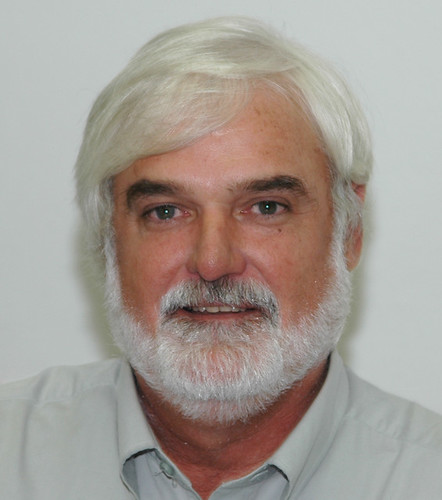ILRI’s new regional representative for East and Southeast Asia Steve Staal (picture credit: ILRI).
Steve Staal has been appointed the new regional representative of the International Livestock Research Institute (ILRI) for East and Southeast Asia. An American citizen who has lived and worked in developing countries throughout his life, Staal will be based at the headquarters of the International Rice Research Institute (IRRI), in Los Baños, The Philippines.
Staal, an agricultural economist by training, has been based at ILRI’s headquarters in Nairobi, Kenya, for many years, where he recently led ILRI’s Markets, Gender and Livelihoods Research Theme and in the past year served as ILRI’s interim deputy director general for research, during the institute’s transition to a new management team. Among other assignments, he has worked in South and Southeast Asia to enhance smallholder dairy and pig systems in particular. He has a long-standing track record in making a difference in policy analysis and advocacy for inclusive and pro-poor smallholder livestock-based development.
This ILRI position for coordinating and shaping ILRI’s collaborative livestock research in East and Southeast Asia is new. Staal’s appointment to it is a reflection of ILRI’s intent to strengthen its presence in Asia and its productive partnerships there so as to provide better support for livestock research for development in the region. Purvi Mehta-Bhatt (India), who has been heading ILRI’s research in all of Asia, will continue to represent ILRI in South Asia.
ILRI’s head of Asia Purvi Mehta-Bhatt, taken during a field day In Haryana, India, in 4 Nov 2012 (picture credit: ILRI).
This new assignment for Staal and new focus for Mehta-Bhatt is made to increase ILRI’s engagement with partners throughout Asia.
ILRI stakeholders are encouraged to communicate with Steve Staal, at s.staal [at] cgiar.org, on areas of potential mutual interest, including opportunities for new collaborations and interactions, in East and Southeast Asia.



